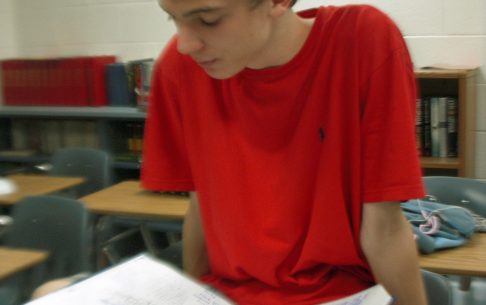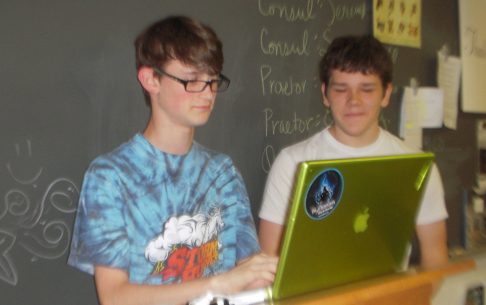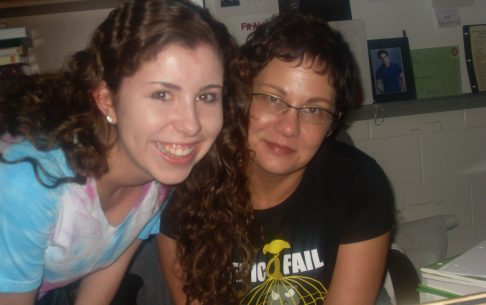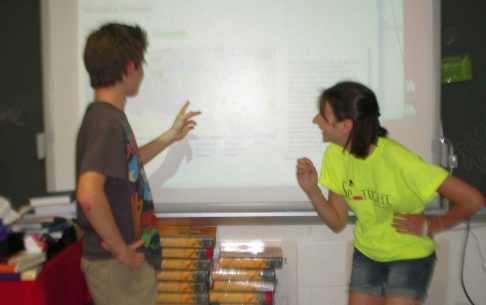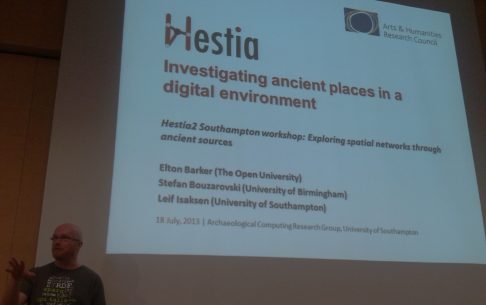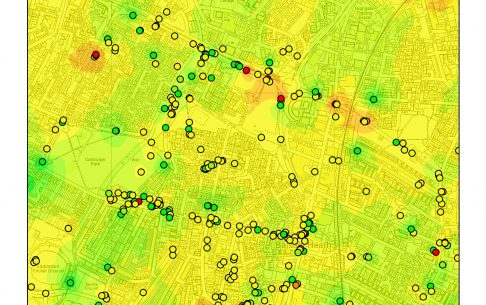Encouragingly, the results showed that the students enjoyed using Hestia, particularly the ability to scan the ancient locations and find out about what Herodotus says about them using GoogleEarth. Initially we thought that was accounted for by the fact that GoogleEarth was new to students and that they enjoyed the novelty of seeing the world from satellite. Rather than GoogleEarth’s novelty, most of the students were already seasoned users of the application. So it appears that Hestia was building upon their technological familiarity.
Read More»One of the ways that my collaboration with Hestia added to my own “pedagogical toolbox” as a teacher was working with Elton to design the survey. The survey itself had to target a student audience and, at the same time, deliver robust information for the research team. I had a lot of experience and interest in writing good questions and assessments to evaluate student mastery, but I did not have a lot of experience thinking in survey metrics.
Read More»As I concluded the first installment of this story, we left off with Elton and myself considering a robust pedagogical framework that would guide our decisions about involving the students during their classroom time. We were hoping that the lessons would be interesting but also would convince educators that our goals aligned with other school goals for curriculum and school improvement. Therefore, some of the consequential, overarching philosophical questions we pondered were: Can a digital lab work? How can it work? What consequences might it have? What potential might there be to share or to extend the practice?
Read More»In 2010, the Hestia team worked together with a high school in the US state of Virginia to experiment with different ways of thinking about Herodotus’s Histories using digital resources. In the next series of posts, Chris Ann Matteo, formerly an Outreach officer for the American Philological Association (APA) and a teacher of Latin in Loudoun County Public Schools at the time, talks about the inspiration behind the collaboration.
It all started when I met Elton Barker at the final dinner of the Classical Association Annual Conference in March of 2009 in Glasgow.
Read More»As the organiser of the Hestia2 seminar in Southampton I could write about our initial struggle to find a good format, my fight with the university to book a seminar room in a completely booked out campus, discussions with our financial support staff to figure out a balanced budget, the technical flaws with our livestream feed, and of course the many very human feelings like “no-one will turn up!?!” and “what shirt should I wear?”. But none of that would be very interesting to read, and all of these concerns are now firmly pushed to the back of my mind and replaced by the feeling that this seminar was a success!
Read More»I’ve come into Hestia2 feeling like a bit of an interloper, asked by my former colleague Stefan Bouzarovski to join the original team in order to organise one of the workshops (which we’ll be holding in Birmingham in the new year). So it was with a little trepidation that I made my way down to Southampton for the inaugural meeting on a baking hot 18 July. Meeting Elton Barker and other members of the team for the first time further convinced me that I’m part of a really exciting project.
Read More»